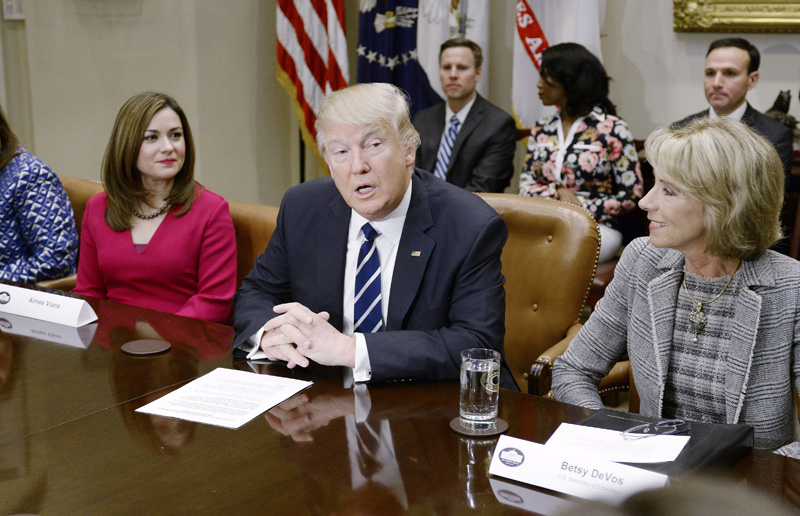U.S. President Donald Trump has weighed in on child autism, apparently without a complete grasp of the research.

Trump in the past has promoted debunked theories linking vaccines to autism, and shortly before his inauguration was considering a commission on the matter. Such comments have alarmed health professionals. Just last week, the American Academy of Pediatrics and dozens of other health organizations signed a letter to Trump saying claims that vaccines aren’t safe “have been disproven by a robust body of medical literature,” and offering to meet with him to explain that science.
READ: Trump’s support for anti-vaxxers could lead to deadly outbreaks, disease expert warns
A look at his statement at a forum Tuesday and what is known about the prevalence of autism in children:
TRUMP: “Tremendous increases … really a horrible thing to watch the tremendous amount of increase.”
THE FACTS: About 1 in 68 school-aged children has autism or related disorders, a rate that has stayed about the same for two years, the U.S. Centers for Disease Control and Prevention reported in March.
That’s far more than in 2000, when the CDC estimated that about 1 in 150 children had autism. That increase is explained in large part by more awareness of the developmental disorder and changes in practice that broadened the definition for an autism diagnosis.
Labeling also is an issue, as parents became more likely to seek out the increasing services for autism and related disorders that are available in schools and other settings. Still, the CDC says that a true increase in the number of people with autism cannot be ruled out.

Get weekly health news
READ: How fading dread of deadly diseases could let them stage a comeback
WHY IT MATTERS: While Trump during one primary debate insisted he was “totally in favour of vaccines,” he has subscribed in the past to theories unsupported by scientific evidence linking vaccines to autism. He tweeted in 2012: “Autism rates through the roof–why doesn’t the Obama administration do something about doctor-inflicted autism. We lose nothing to try.” In 2014: “If I were President I would push for proper vaccinations but would not allow one time massive shots that a small child cannot take – AUTISM.”
A similar assertion in a 2015 presidential primary debate brought a rebuke from the American Academy of Pediatrics, which said it is “dangerous to public health” to suggest that vaccines are linked to autism.
Although Trump has not made such categorical statements about vaccines and autism as president, he met during the transition with Robert F. Kennedy Jr., a prominent critic of an ingredient sometimes used in vaccines. Trump spokeswoman Hope Hicks said at the time that Trump was considering a panel on the subject.
More broadly, those who attribute autism to vaccination seize upon any rising numbers as an argument against vaccination. That has proven worrisome to public health officials because it could divert money away from things that should be a higher priority.
READ: Bestiality and human-cow hybrids: The original anti-vax movement
On Wednesday, Politico reported that Kennedy met for a full hour on Jan.10 — 10 days before the inauguration — with Trump, Mike Pence and senior advisers Steve Bannon and Stephen Miller.
Tom Price, a doctor who Trump named as health secretary, belongs to a group of conservative doctors which has called mass vaccination “equivalent to human experimentation.” At his confirmation hearing, however, he told senators that he didn’t think vaccines caused autism.
On Thursday, Kennedy and actor Robert De Niro announced a $100,000 prize to anyone who can prove that vaccines are safe.
WATCH: Beginning Monday, Albertans aged six months and older are able to get their flu shot for this season. Su-Ling Goh has details and also hears from a woman who nearly died from the flu last winter.

— With files from Global News





Comments
Want to discuss? Please read our Commenting Policy first.